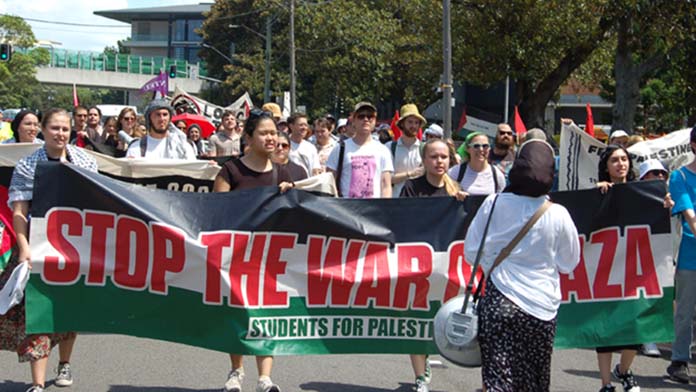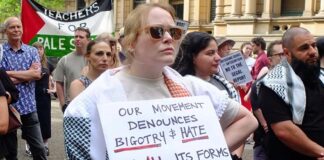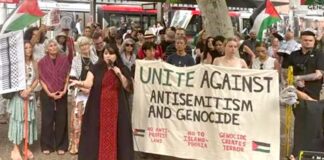The nationwide “Student Strike for Palestine” on 29 February showed both the potential and the striking amount of work still to be done to win students to taking action over Gaza.
With 7 October falling shortly before the end of classes last year, it was the first chance for a major uni student protest since Israel’s genocide began.
The response on campuses, however, was modest.
Around 600 rallied in Sydney, 500 in Melbourne and 200 in Canberra.
The size of the protests shows the gap between a minority who are horrified by the slaughter in Gaza and want to act, and the wider student body.
Many students are yet to be convinced we can do anything to stop Israel’s genocide, but a growing number are expressing opposition to it. With the protests held just two or three weeks into semester there was limited time to build.
Although labelled a student strike, there were no class walkouts of the kind needed to shut down campuses. Regardless, student activists petitioned for their universities to cut ties with Israel and weapons manufacturers, made announcements in lectures and classrooms, leafletted and postered all over campuses to try and make the event as much of a success as possible.
The speakout and march from the University of Sydney drew about 150 students to Eastern Avenue.
Activists faced push back from management and attempts to stifle the ability to campaign in classrooms. Management sent emails warning of “disruption” from students making lecture announcements, and department-wide bans on promoting the walkout were issued by some faculties.
Some lecturers refused to allow lecture announcements in their classes—something rarely experienced around other issues such as climate change or Indigenous rights.
The work done by activists on campus was essential to reaching and convincing students to protest.
Many of the new students who showed up said it was because of the announcements made in their classes, and the posters around campus.
Surprisingly, at UTS management actually sent an email to all students advising that there would be no penalty for those who missed classes to attend, as they did during the Climate Strikes. This had the effect of advertising the rally to students, with about 80 joining the protest despite limited organising on campus.
Around 80 students also met at UNSW before travelling to the main protest at Sydney Town Hall.
Significant portions of the crowds were students who were showing up to their first protest. Even this moderate turnout is indicative of a layer of new students who want to join the fight for Palestine.
The protest must be seen as the first step in building an ongoing campaign. The growth of the profile of Palestine on campuses, aided by the exposure of seemingly endless links between major universities, Israel, and weapons manufacturers, means there is significant potential to campaign.
At Sydney Uni activists are passing motions in classes to build a day of action on 27 March against weapons partnerships with Thales and the Defence Force.
Only an outwardly oriented campaign with a focus on drawing further layers into the struggle will successfully be able to build the pressure to cut the ties between education and imperialism.
By Jack Stubley






